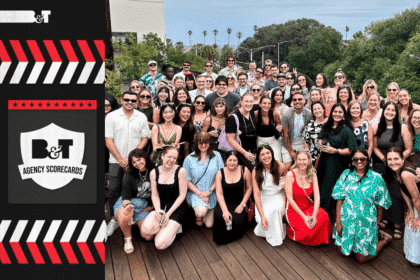Meltwater and We Are Social have released Digital 2023 Australia, their latest annual report highlighting the most notable findings on digital trends and social media in Australia.
Download the report HERE.
The research highlights the growing significance of digital in Australia, with internet usage and social media engagement reaching new heights. According to the study, 96.2 per cent of the population, or 25.31 million people, are internet users, and the number of active social media users stands at 21.30 million, or 81 per cent of the population.
When it comes to media consumption, the study found that internet users aged 16 to 64 spend an average of 5 hours and 51 minutes each day using the internet, a decrease of 5.9 per cent from the previous year. On the other hand, the average daily time spent using social media has increased by six per cent to two hours and four minutes (up seven minutes). The popularity of podcasts has also continued to rise, with a 16.7 per cent increase in the average daily listening time.
Social media is increasingly a key source of information for 61.5 per cent of users aged 16 to 64 (+5.9 per cent), with almost one in three internet users visiting social networks to look for information about brands and products – up by 7.3 per cent since this time last year. Facebook and Facebook Messenger continue to be the most popular social media platforms, followed by Instagram and TikTok.
The Digital 2023 Australia report also showed that TikTok saw the most significant rise in usage, with users spending an average of 29 hours and 36 minutes per month on the platform, a 6-hour and 12-minute increase (26.5 per cent) since last year. This means Australia has the highest TikTok monthly usage time in the world. In comparison, Facebook users spend 17 hours and 48 minutes, while YouTube users average 17 hours and 6 minutes, per month.
TikTok was also the second most downloaded mobile app in Australia in 2022, behind Australian Taxation Office’s myGovID and followed by BeReal, and earned the fourth spot among mobile apps driving the highest in-app consumer spend, behind Disney+, Tinder and YouTube.
Ross Candido, VP ANZ and South-East Asia at Meltwater said: “Social media should be a key strategic focus for marketers as consumers are spending more and more time on social platforms to discover and research new brands and products. As social intelligence can help brands capture important insights on consumer content preferences, it will play an important role for brands to optimise their campaigns and engagement with audiences. Tapping into this rich dataset will be essential to capture the attention, trust and loyalty of consumers.”
Suzie Shaw, CEO at We Are Social Australia, said: “There has been a shift in internet usage patterns in the last year: Australians are spending more time than ever on social media, despite the decrease in time spent on the internet overall. Social media is one of the go-to sources for brand discovery for consumers, making it a crucial channel for marketers to reach their target audience. As social media offers a more engaging and immersive experience, users are increasingly turning to social to make decisions on what to watch, where to travel, and what to buy, with TikTok playing an especially significant role in influencing consumer choices. Its unique algorithm and content captivate Australians for an hour a day, providing a great opportunity for marketers to reach a highly engaged audience. It is now more critical than ever for brands to have a strong presence on social media, and to understand how to navigate the ever-evolving culture of the internet and influencers, in order to connect with people in a meaningful way.”
Video consumption continues to be on the rise, with 87.6 per cent of internet users aged 16-64 consuming some form of video content. Gaming videos have seen a 4.3 per cent increase while influencer videos and vlogs have experienced a 4.2 per cent increase.
When it comes to privacy and security, the study revealed that 40.1 per cent of online adults decline cookies on websites at least some of the time, 34.2 per cent use ad blockers, 36.8 per cent worry about how companies might use their online data, and 33.2 per cent prefer to remain anonymous when using online services. This highlights the continued importance of online privacy and security for users, and the need for marketers to reconsider their media approach.
The Digital 2023 Australia report also shows how people are regularly choosing to purchase consumer goods through the internet, with 19.46 million Australians spending a total of USD 39.57 billion.
Fashion, food, and beverages are growing, with fashion now accounting for USD 9.8 billion (+2.1 per cent), food for USD 3.81 billion (+4.4 per cent), and beverages for USD 2.76 billion (+6.2 per cent). The online travel and tourism industry is also experiencing growth, with an increase in annual spending for flights (USD 7.34 billion, +123 per cent), car rentals (USD 850.7 million, +30.4 per cent), long-distance buses (USD 70.27 million, +23.6 per cent), hotels (USD 4.28 billion, +32.4 per cent), package holidays (USD 2.02 billion, +21.8 per cent), vacation rentals (USD 924.8 million, +63.6 per cent), and cruises (USD 190.6 million, +35.1 per cent).
Social media is proving to be a valuable source of information, with 24.8 per cent of internet users aged 16 to 64 discovering new products and services via social ads. The main channels for online brand research among this age group include search engines (55.6 per cent), product or brand sites (35.8 per cent), consumer reviews (33.4 per cent), and social networks (32.5 per cent).
Total ad spend across all channels reached USD 15.56 billion in 2022, a 7.8 per cent increase from the previous year. Digital ad spend, which includes search and social media, made up 75.8 per cent of the total with USD 11.80 billion, a 10.4 per cetn increase from the previous year. Social media accounted for 31.5 per cent of total digital ad spend with USD 3.71 billion, an 11.6 per cent increase. Annual spend on digital ads reached USD 11.80 billion, with the highest increases in digital video ads (USD 3.08 billion +15 per cent), influencer marketing (USD 379.4 million +19.4 per cent), and digital audio ads (USD 106.5 million +19.9 per cent).








